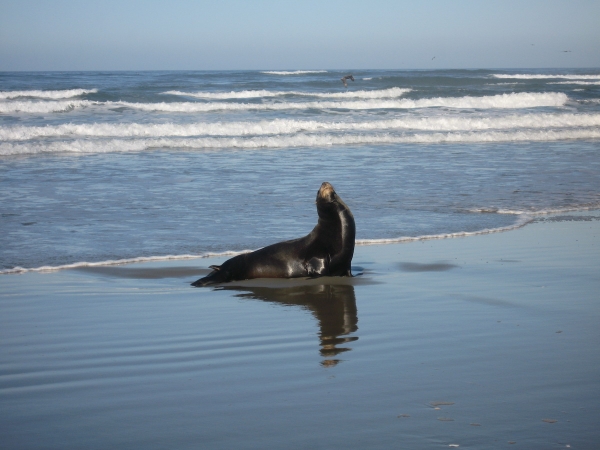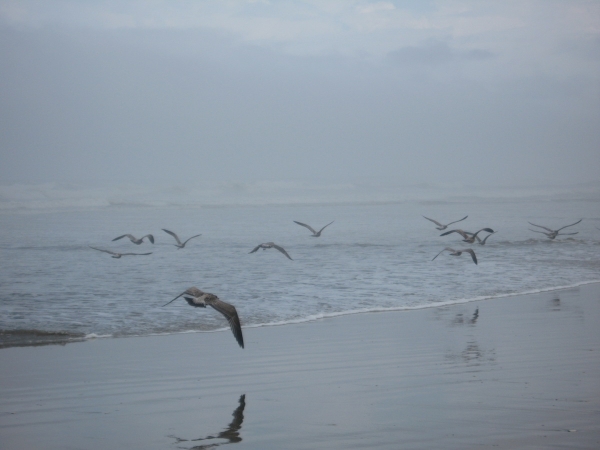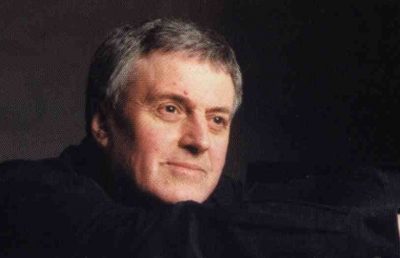Greetings from the damp, gray Oregon Coast! Actually we had a gorgeous week last week, so I'm not complaining!
There is plenty of news this month, so grab something warm to sip on and enjoy!
In 19th century Germany, city governments passed ordinances limiting the hours when one could practice the piano.
In addition to “inventing” the piano, Bartolomeo Cristofori invented the "una corda" pedal (the soft pedal) in about 1726.
When Erik Satie died, it was discovered that he had several hundred umbrellas in his home.
New Reviews: We started the year off with a bumper crop of reviews of singles as well as full-length albums. I also reviewed two songbooks, both by James Michael Stevens. His
The Months of 2021 is a very impressive volume of 186 piano solos and 643 pages! Here is the link to all of the
newest reviews. There is a wealth of new material coming in February, too!
The earliest upright piano we know of was made in 1739 near Florence, Italy. The case is a little more than 6 1/2 feet tall and sits on a stand that lifts it another 2 1/4 feet.
The first modern pedal mechanism was developed by piano builder Sebastien Erard in 1810.
At one of Andre Watts’ concert performances, the pedals came off as he was playing. He tried to hold the pedals up with his feet as he continued to play, but he finally had to give up and went offstage to find the emergency piano technician.
New Interviews: I'm very excited to share the two new interviews I did in January!
The first is with pianist/composer
Michael Gettel who is releasing his first album in more than 20 years on February 11, 2022. The album is called
The View From Here and is Michael's second solo piano album ever (his other albums were more orchestrated). The first was his debut album,
San Juan Suite, which was released in 1988. Michael was one of the first artists who signed with the Narada label and is also included on several compilations. This interview and the review of his album are getting a lot of traction on MainlyPiano.com, so I think the world is really looking forward to Michael's comeback!
The second review is with author/pianist/composer
Leona Francombe. I recently reviewed her newest book,
The Universe in 3/4 Time, which has become one of my very favorite books. I wanted to find out more about both the background of the book and Leona herself, and she graciously agreed to do the interview.
Franz Liszt became the first pianist to employ an agent, Gaetano Belloni, who for six years in the 1840s served as his advance man, business manager and secretary on his concert tours across Europe.
At the Paris Conservatory, separate piano competitions were held for men and women throughout the nineteenth century, with different assigned competition pieces each year. A work that was assigned to the men one year might be assigned to the women the next year. What mattered most was that there should never be a direct comparison between women and men students because it was too controversial to test the belief that women couldn’t play as well as men.
When Charles Ives’ Concord Sonata and Fourth Symphony are performed, a specially-sized block of wood is used by the pianist for striking complex chords directly.
Remembering Michael Jones: I'm sure many of you have heard by now that pianist/composer Michael Jones passed away on January 19, 2022 at the age of 79. The first artist signed to the Narada label in 1983, Michael and his music had a huge influence on the so-called New Age music genre as well as other artists creating music at that time and beyond. Michael contacted me in 2002 about possibly doing an interview for SoloPianoPublications.com, the site I was writing for at the time. We did that interview over the phone and I recorded it on one of those little micro cassettes (remember those?). We had several wonderful phone conversations after that, but lost touch sometime after I reviewed
Almost Home in 2006. Rather than rambling on here, I would like to link to that
2003 Interview with Michael Jones where Michael told so much of his fascinating story himself. It's an inspiring story and says so much about who Michael was as a person. Rest In Peace, Michael! You are missed, but your music lives on!
A celebration of Michael's life will be held on February 9, 2022 and can be watched
here.
Steel piano strings and felt-covered hammers were introduced in 1826 by Jean-Henri Pape.
An architect built an apartment building in New York in 1891 that had an upright piano built into every parlor.
In the 1880’s, surgeons began performing an operation on pianists in which they severed the tendons between the ring finger and the little finger so that the “liberated” ring finger would be equal in movement to the others.
A Few Changes: It was time to do a few changes and updates to the MainlyPiano.com site, so Tim Neumark (my fantastic webmaster) and I are doing just that. I needed a category for articles that weren't reviews or interviews, so we decided to add a new menu item and category simply called "Articles." So far, we have Steve Yip's article about Afrobeat music and my tribute to Michael Jones. The links to those articles are in the Interviews section of the homepage, which is now "Interviews and Articles." We removed a couple of menu items that are no longer being used to streamline that a bit, but the tags for those are still found in the "Explore" link in the main menu. We'll keep you updated on any other changes as they come up.
In Frederic Chopin’s Etude for Piano in G-flat Major, nicknamed the “Black Key Etude,” a white key is played only once, with the right hand.
By the 1870s, piano tuning was sufficiently established that it began to be treated as an attractive opportunity for classes of workers with disadvantages in the workplace. The Royal Normal College and Academy of Music for the Blind in England offered training in piano tuning to the blind, as did New England Conservatory for women. (Noted with irony!)
Thousands of one-finger piano pieces were written during the nineteenth century and served as parlor entertainment. One of those was “Chopsticks,” which was published in Glasgow in 1877.
Introducing Steve Yip: If you've visited MainlyPiano.com in the past couple of weeks, you might have noticed a new name onboard. Steve Yip was my best friend back at Oakland High School and we reconnected again after far too many years when he found me on Facebook a few years ago. Steve relocated to New York for college and stayed there. He retired the end of 2021 as Director of Operations for the Chinese-American Planning Council, a position he held for more than 23 years. We were chatting recently and Steve mentioned that he was looking for some writing projects and a light-bulb went on in my head. I thought it would be so much fun to work with Steve again and invited him to write occasionally for MainlyPiano.com. He is trying it out for now, and wrote an article called
"Introducing Afrobeat" and a review of
Fela Kuti & Africa 70 Live! with Ginger Baker. I think he's off to a great start and will offer an interesting new voice to the site. Welcome, Steve!
Carnival of the Animals by Saint-Saens is a humorous work that represents different animals. Along with selections named for kangaroos, swans, donkeys, etc. is a short piece called “Pianists.” It is a crazy sketch of out-of-control pianists racing up and down the keyboard practicing their scales and exercises.
In 1866, a piano was patented that turned into a couch and had closets for bed clothes and a wash basin. The stool converted to a workbox, looking glass, desk, and a small set of drawers.
Vladimir de Pachmann, a piano virtuoso of the late 19th and early 20th centuries, claimed that milking cows was the best finger exercise there was.
February Birthdays: Here is a sampling of musical birthdays in February:
2/7: James Michael Stevens, Bryan Carrigan & David Hicken
2/10: Robert Thies
2/14: Ben Dowling
2/15: Christian Lindquist & Craig Burdette
2/17: Sally Kidwell
2/19: Anne Trenning & Kevin Wood
2/20: Rachel LaFond
2/22: Oliver Bohovic
2/24: Jeff Fair
2/25: Starr Parodi & Penka Kouneva
2/26: Greg Maroney
Happy Birthday to all of you!
Piano tuning was a special skill after 1750, and became an occupation in the 1800's.
American spinet pianos started being produced in 1935. Some of the names used to market them were “Minipiano,” “Vertichord,” and “Acrosonic.”
In London, John Broadwood sold his first square piano in 1780 and his first grands in 1785.
February Music "Holidays" and Celebrations:
2/2: National Ukulele Day
2/3: The Day the Music Died Day
2/4: Liberace Day
2/7: International Clash Day
2/8: Opera Day
2/11: Get Out Your Guitar Day
2/13: World Radio Day
At Dolly Madison’s request, a piano was purchased specifically for the White House, but it was destroyed when the British burned the building during the War of 1812.
Steinway presented the White House with an ornate gold-covered grand during Theodore Roosevelt’s administration. It was the 100,000th piano built by the company, and now stands in the Smithsonian Institution.
In 2006, the British pianist Stanislav Yovanovitch visited Harbin, a city on the Northeastern spur of China for its annual music festival. During his time there, he joined 1,000 fellow players in a mass rendition of Schubert's "March Militaire" in the city square. The event set the world record for most pianists playing one piece at the same time. That concert was one of the items the city listed on its résumé (along with being home to the country’s oldest symphony orchestra) to help it win an official recognition as “Music City” from the United Nations.
I realized as I was laying out this issue that I didn't take any photos all month! Oops! So, I will sign off with some old favorites. Have a great month, Happy Valentine's Day, and I'll meet you back here next time!
Kathy

Heceta Beach, Florence, OR 2007

Brio in the snow 2008 (Florence)

Heceta Beach, Florence, OR 2008

Heceta Beach, Florence, OR 2008

Chelsea rearranging Heceta Beach 2008

Heceta Beach, Florence, OR 2008
Trivia Disclaimer: To the best of my knowledge, the music trivia and "factoids" within Pianotes are true, but I can’t guarantee it.










